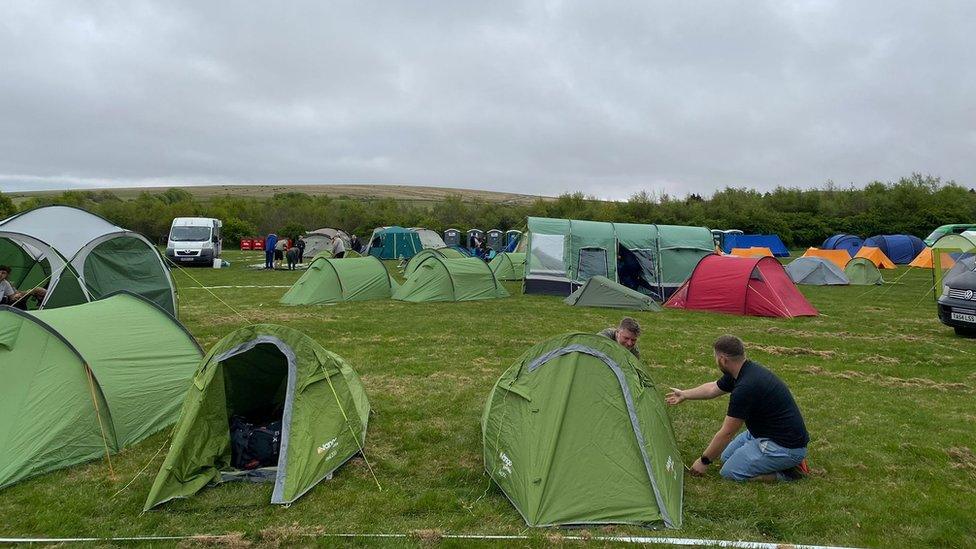Dartmoor wild camping ban a catastrophe for children says head teacher
- Published
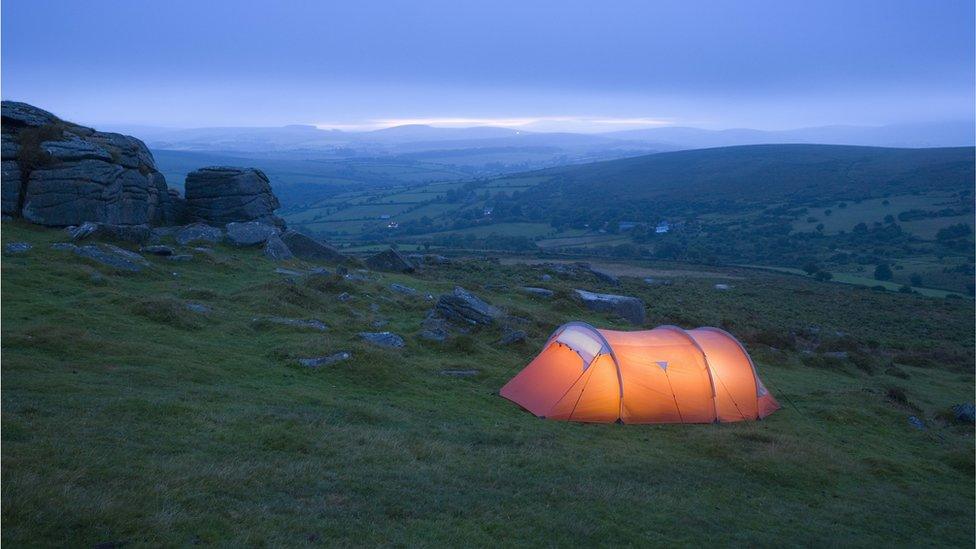
Dartmoor was the only area of England and Wales where under a local law there had been an assumed right to wild camp without the landowner's permission
A High Court ruling which bans wild camping on Dartmoor without the landowner's permission is a "catastrophe", a head teacher has said.
Michael Johnson, from Chulmleigh Academy Trust, spoke after a Dartmoor landowner won the right to remove people wild or backpack camping.
Each year hundreds of children train on the moor ahead of the Ten Tors Challenge in May.
Mr Johnson said he could not see how training could now take place.
Ten Tors involves 2,400 teenagers tackling routes of 35, 45 or 55 miles while carrying all they need to complete their route and stay out overnight.
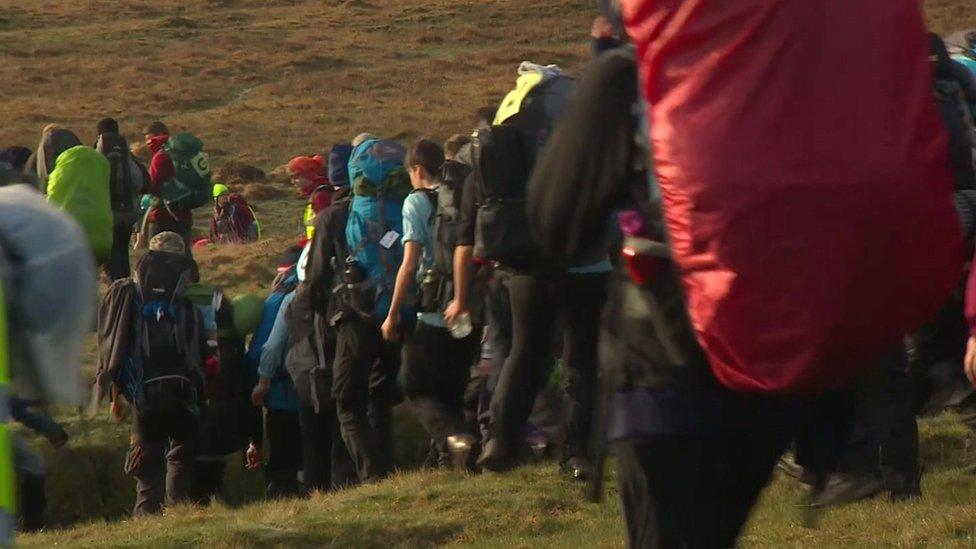
Dartmoor National Park Authority said it was "disappointed" by the ruling
Dartmoor was the only area of England and Wales where under a local law there had been an assumed right to wild camp without the landowner's permission.
Mr Johnson said the ruling was "great news for deer stalkers and pheasant shooters, but a catastrophe for children who would have loved wild camping on Dartmoor".
He said getting permission from landowners would be "practically impossible".
"Something has got to change and it has to change very quickly because the chance to do training for the Ten Tors is just not there any more now," he said.
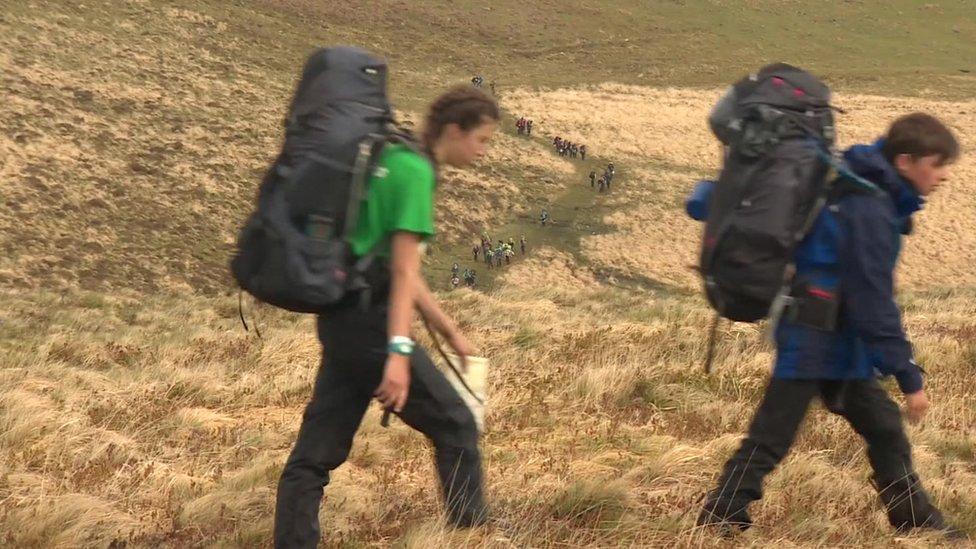
The Duchy of Cornwall said it was talking to the park authority and landowners about the way forward
Ruth Marvel, chief executive of The Duke of Edinburgh's Award, said she was "extremely disappointed" by the decision.
Ms Marvel said after the pandemic "now is the time to protect and extend their right to explore the great outdoors and get off the beaten track, with all the vital mental and physical benefits that brings".
John Howell, chair of the Dartmoor Commons Owners' Association, said it was "inconceivable" that the Ten Tors or Duke of Edinburgh's Award would be stopped on land owned by the The Duchy of Cornwall, the biggest landowner on Dartmoor.
"A lot of private owners like myself are wild campers ourselves and we welcome responsible wild camping," he said.
'Really disappointed'
The Duchy said it was "committed to managing our estates in a way that balances the needs of both tenants and visitors" and it was talking to the park authority and landowners about the way forward.
Dartmoor National Park Authority said it was "really disappointed" by the ruling and was consulting with landowners on its next move.
Ten Tors said it was "aware of the current uncertainty surrounding the implications of the recent announcements regarding the freedom to wild camp on Dartmoor".
Alexander Darwall and his wife Diana, who own the Blachford Estate on Dartmoor and took the case to the High Court, said it was never their intention to ban camping on Dartmoor, but to "clarify the law".
They said in a statement on the Blachford Estate website, external: "We have always wanted to work with the Dartmoor National Park Authority on this issue and the recent court ruling now affords us that opportunity.
"We are hoping to come to a mutually satisfactory arrangement in the near future."

Follow BBC News South West on Twitter, external, Facebook, external and Instagram, external. Send your story ideas to spotlight@bbc.co.uk, external.
Related topics
- Published13 January 2023
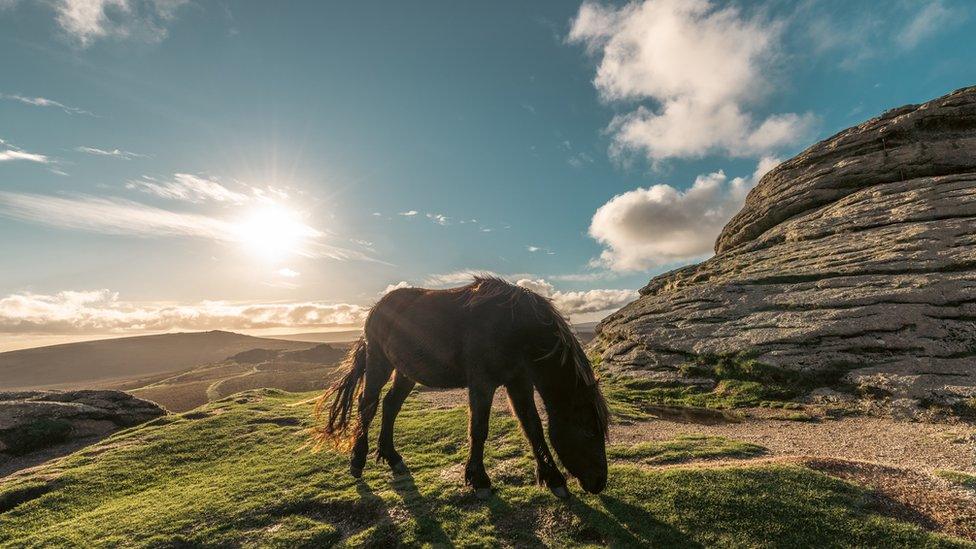
- Published28 May 2022
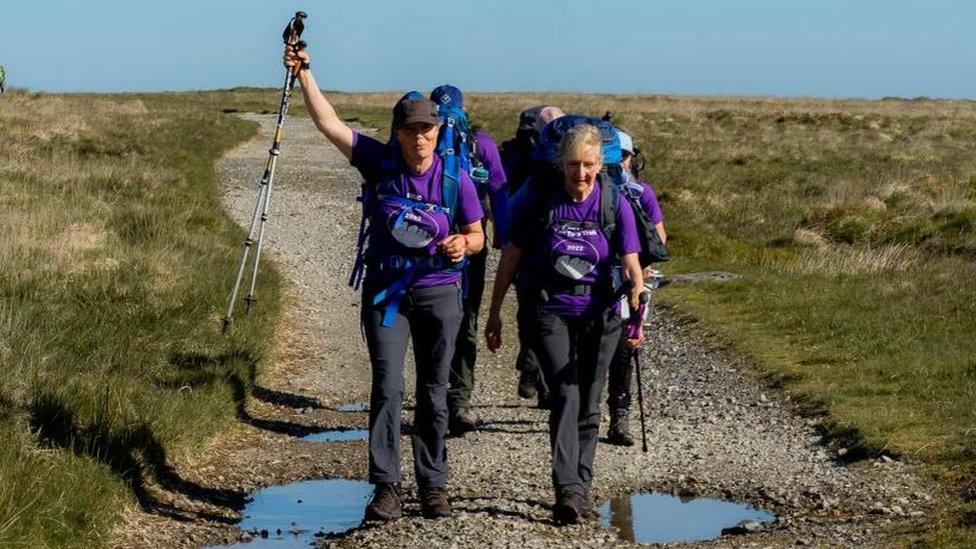
- Published8 May 2022
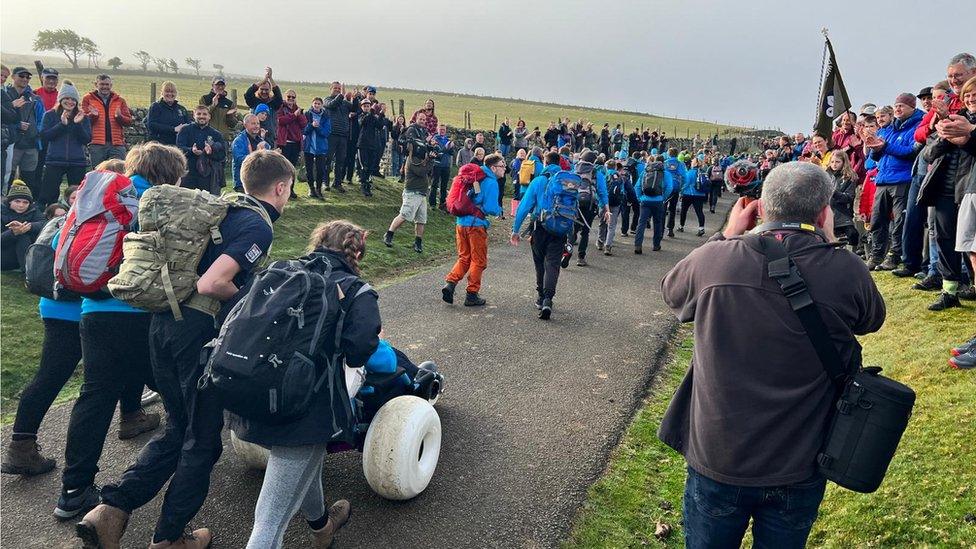
- Published6 May 2022
